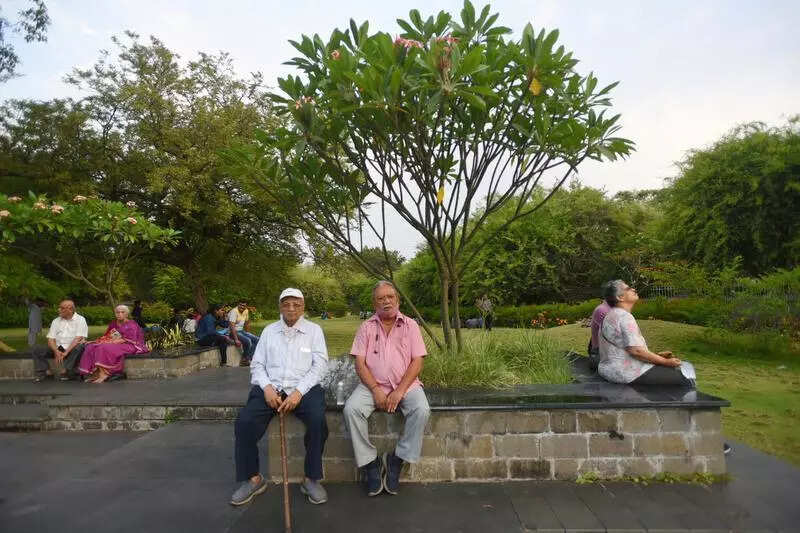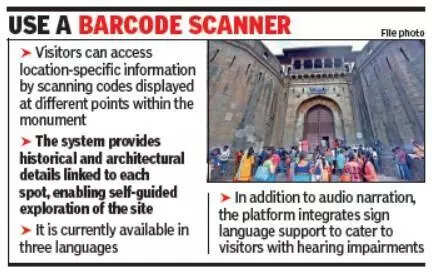Pune: An increasing number of senior citizens in Pune are turning to the district collector’s office for justice under the Maintenance and Welfare of Parents and Senior Citizens Act, 2007, after being harassed, neglected, or evicted by their children — despite having transferred property to them with the hope of receiving care.Since Jan this year, 35 such appeals have been filed, and 20 resolved in favour of the elderly till April, allowing them to reclaim homes or secure maintenance through tribunal orders. Officials said the collector’s office receives 20–25 complaints a month, mostly from urban areas, where breakdown of traditional family structures and lack of community support have left many elderly vulnerable.The 2007 Act allows parents aged 60 and above to seek monthly support from children or relatives and includes provisions to void property transfers made under the expectation of care, if those conditions are violated.In one such case, a 72-year-old man who had been verbally abused and ousted from his home by his daughter approached the tribunal. The order went in his favour, directing the daughter to vacate the premises and return possession of the property.In another instance, a widow was abandoned by her daughter-in-law after her son, a govt employee, passed away. Although the daughter-in-law inherited her husband’s job and pension, she refused to care for the elderly woman. The tribunal intervened, ordering the daughter-in-law to provide adequate support.“My daughters threw me out of the house I owned. They even took away the compensation I received after an accident. I had no one to turn to,” said one complainant, requesting anonymity. “When I learned about this law and filed a complaint with the collector, I finally had hope.”Deputy collector Jyoti Kadam, who has been giving hearing such cases, said, “We often find men acting under pressure from their wives. But the law is clear — no child has the right to evict their parent from their own property. Neglect, harassment, or eviction can invite orders of monthly maintenance or even cancellation of property transfers depending on each case.”In another ongoing case, an unmarried senior who had gifted her flat to a nephew was harassed and driven out of her home. The case is now before the tribunal. Officials noted that while such incidents are more common in urban areas, rural areas still benefit from joint family structures and community vigilance.The 2007 law designates district collectors as appellate authorities, enabling them to hear appeals against maintenance tribunal orders and grant relief without senior citizens having to approach courts. “This empowers district magistrates and additional district magistrates to intervene directly and protect the rights of the elderly,” Kadam added.Ramesh Prabhu, a citizen activist and chairperson of Maharashtra Society Welfare Association, said, “Despite sufficient income, many children neglect their elderly parents. The 2007 Act gives district collectors the power to direct children to provide care. If the elderly has transferred property by way of a gift deed with an obligation of care, the tribunal can cancel such deeds and even attach or sell the property to enforce its orders.“Senior officials said authorities encourage amicable family resolution but make it clear that senior citizens’ rights would be upheld. “Dialogue is ideal, but legal protection is non-negotiable,” an official added.Pune: An increasing number of senior citizens in Pune are turning to the district collector’s office for justice under the Maintenance and Welfare of Parents and Senior Citizens Act, 2007, after being harassed, neglected, or evicted by their children — despite having transferred property to them with the hope of receiving care.Since Jan this year, 35 such appeals have been filed, and 20 resolved in favour of the elderly till April, allowing them to reclaim homes or secure maintenance through tribunal orders. Officials said the collector’s office receives 20–25 complaints a month, mostly from urban areas, where breakdown of traditional family structures and lack of community support have left many elderly vulnerable.The 2007 Act allows parents aged 60 and above to seek monthly support from children or relatives and includes provisions to void property transfers made under the expectation of care, if those conditions are violated.In one such case, a 72-year-old man who had been verbally abused and ousted from his home by his daughter approached the tribunal. The order went in his favour, directing the daughter to vacate the premises and return possession of the property.In another instance, a widow was abandoned by her daughter-in-law after her son, a govt employee, passed away. Although the daughter-in-law inherited her husband’s job and pension, she refused to care for the elderly woman. The tribunal intervened, ordering the daughter-in-law to provide adequate support.“My daughters threw me out of the house I owned. They even took away the compensation I received after an accident. I had no one to turn to,” said one complainant, requesting anonymity. “When I learned about this law and filed a complaint with the collector, I finally had hope.”Deputy collector Jyoti Kadam, who has been giving hearing such cases, said, “We often find men acting under pressure from their wives. But the law is clear — no child has the right to evict their parent from their own property. Neglect, harassment, or eviction can invite orders of monthly maintenance or even cancellation of property transfers depending on each case.”In another ongoing case, an unmarried senior who had gifted her flat to a nephew was harassed and driven out of her home. The case is now before the tribunal. Officials noted that while such incidents are more common in urban areas, rural areas still benefit from joint family structures and community vigilance.The 2007 law designates district collectors as appellate authorities, enabling them to hear appeals against maintenance tribunal orders and grant relief without senior citizens having to approach courts. “This empowers district magistrates and additional district magistrates to intervene directly and protect the rights of the elderly,” Kadam added.Ramesh Prabhu, a citizen activist and chairperson of Maharashtra Society Welfare Association, said, “Despite sufficient income, many children neglect their elderly parents. The 2007 Act gives district collectors the power to direct children to provide care. If the elderly has transferred property by way of a gift deed with an obligation of care, the tribunal can cancel such deeds and even attach or sell the property to enforce its orders.“Senior officials said authorities encourage amicable family resolution but make it clear that senior citizens’ rights would be upheld. “Dialogue is ideal, but legal protection is non-negotiable,” an official added.











